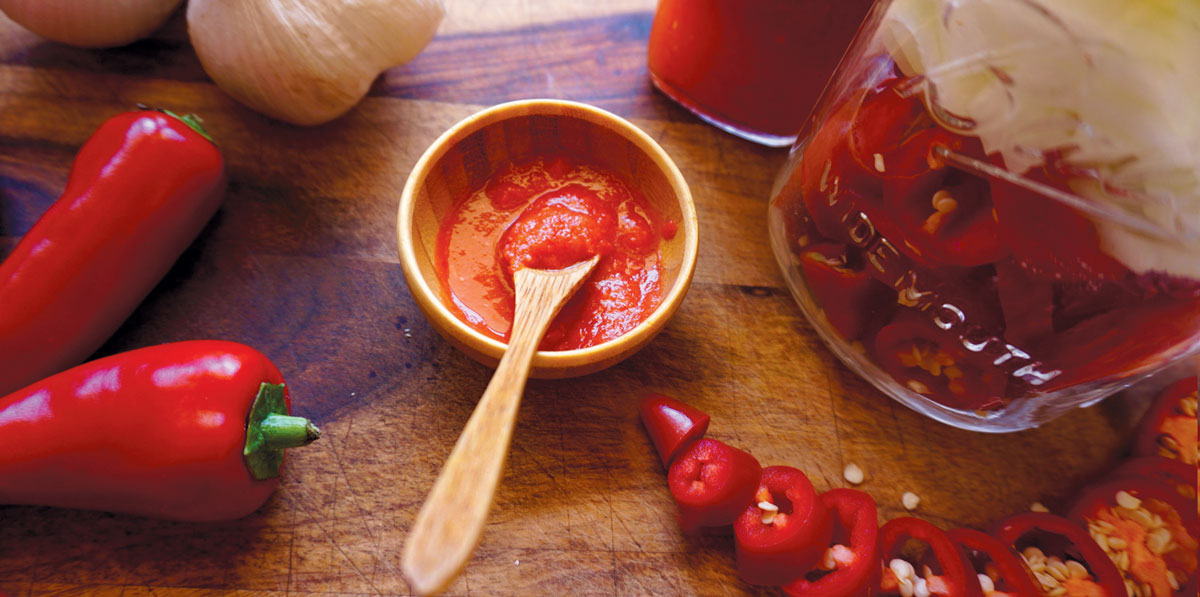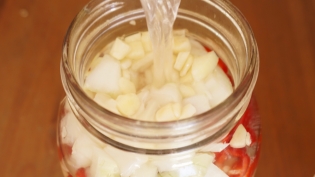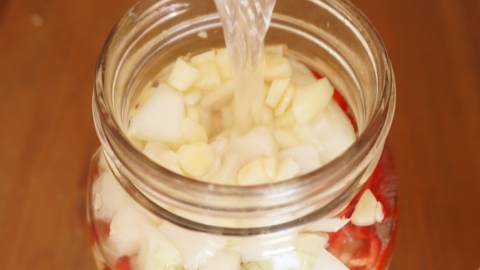Make Your Own Fermented Hot Sauce
Fermented hot sauce adds a dash of health and spice to dishes
When I found sriracha, the spicy red jalapeño pepper hot sauce, it was the start of a new love affair. I put it on eggs, potatoes, any Mexican dish, sushi and in my Bloody Mary cocktails. Now sriracha is seemingly everywhere—from home and restaurant kitchens to mega-brand potato chips.
Being the health-conscious “fermentista” I am, I looked up recipes for a sriracha I could make at home using fermentation practices and that offered the resulting benefits of healthful probiotics.
It was a natural fit. My interest in fermentation started with a love of condiments—from pickles, mustards and sauerkrauts to salsas and hot chili sauces.
What you might not know is that hot sauces were traditionally prepared through lactic acid fermentation. Chilies, salt and time, that’s all that was necessary.
I’ve fermented everything from sauerkraut to kombucha, but was a bit skeptical that I would find a hot sauce recipe good enough to meet my desire for salt, vinegar and heat. So I experimented with different peppers, ingredients and fermentation times and enjoyed how fermentation constantly surprises me with how it transforms simple ingredients into foods with complex flavors and health benefits.
The fermented hot sauce recipe on page 40 is my “sriracha.” It’s a good introduction to the world of fermenting because there are few ingredients and the technique is straightforward.
COOL INFO ON FERMENTED HOT SAUCE
What Is Fermentation?
Fermentation is the transformative action of microorganisms, a metabolic breakdown of bacteria and yeast that convert carbohydrates—such as sugar and starches—into alcohol and acid.
People didn’t invent or discover fermentation. It happens spontaneously from the natural occurrence of bacteria and yeast found on food. All over the world, cultures have applied fermentation to make products such as wine, beer, mead, cheese, chocolates, vanilla and cured meats—long before the biochemical process was understood.
Why Ferment Hot Sauce?
Not only are the flavors more rich and complex, but fermenting the hot sauce also makes it chock-full of probiotics. Probiotics may help people by improving their immune function, preventing infection by protecting against bad bacteria and improving the digestion and absorption of food and nutrients, according to a Harvard Medical School publication. Mounting research shows that the bacteria living in our digestive tract play a significant role in our overall health.
What Chilies Should I Ferment?
Any hot chili peppers can be used for this hot sauce. Locally grown chilies are in season, so there are lots of options with varying heat levels to choose from. I recommend using organic or sustainably farmed peppers because residual pesticides can affect the fermentation process; plus you want the healthy bacteria and yeast from healthy soils.
I like red Fresno peppers because they have spicy yet fresh and sweet undertones. If you can’t find red Fresno peppers, you can also experiment with heat levels from red jalapeños, Anaheim, habaneros, red cherry or cayenne peppers.







